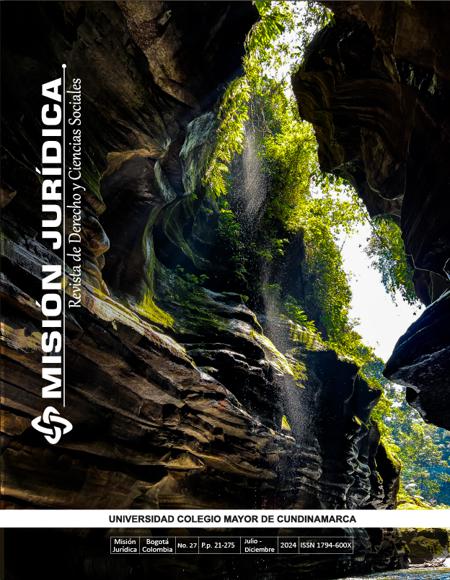Indigenous Women at the University Level: Reflections About Their Experiences
Mujeres Indígenas Universitarias, reflexiones en torno a sus experiencias

This work is licensed under a Creative Commons Attribution-NonCommercial-NoDerivatives 4.0 International License.
Show authors biography
In today’s society, the various roles played by women and their impact on their communities has grown in importance. Thus, we need to realize women’s struggles are different and related to cultural diversity, and the experiences stemming from that circumstance. Hence the need to understand the barriers, challenges, and struggles faced by Indigenous women at the university drawing on an intercultural feminist approach. Following Bonilla and Rodriguez’ qualitative methodology, we found several challenges encountered by Indigenous university woman students regarding their recognition as social subjects. Likewise, they face the challenge of harmonizing their cultural identity experiences and social demands, as well as finding their place as autonomous and members of a collective. In addition, attention should be paid to structural, social and academic hindrances in women’s educational process and the roles they hold, which imply greater visibility, creating safe spaces, and exchanging cultural views.
Article visits 65 | PDF visits 41
Downloads
- Bustillo, R. (2016). Lo indígena y las teorías del reconocimiento de las culturas, “de la otredad a la alteridad”: Una aproximación conceptual [Archivo PDF].
- Bonilla, E., & Rodríguez, P. (1995). Más allá del dilema de los métodos: la investigación en ciencias sociales. CEDE, Facultad de Economía, Universidad de los Andes.
- Caguana, R (2018). Género e interculturalidad: hacia la búsqueda de un feminismo indígena ecuatoriano. Pucara, Nº 29, 71-88, 2018. Universidad Andina Simón Bolívar. DOI: https://doi.org/10.18537/PUC.29.01.04
- https://publicaciones.ucuenca.edu.ec/ojs/index.php/pucara/issue/archive Iseo 2661-6912
- Castells, C. (1996). Perspectivas feministas en teoría política. Estado y Sociedad. Barcelona.
- Cogua, V; (2021). Feminismo Indígena comunitario: de la teoría a la acción en las comunidades. Revista Nueva Época, (57), 55-74. https://doi.org/10.18041/0124-0013/nuevaepoca.57.2021.9105 DOI: https://doi.org/10.18041/0124-0013/nuevaepoca.57.2021.9105
- Collazo Valentín, LM, (2005). De la mujer a una mujer. Otras Miradas , vol. 5, núm. 2, Universidad de los Andes Mérida, Venezuela. https://www.redalyc.org/pdf/183/18350201.pdf
- Cortez, (2020) La emoción feminista: un camino hacia un diálogo intercultural - AMIDI. AMIDI. https://www.amidi.org/emocion-feminista-dialogo-intercultural/
- Departamento Nacional de Planeación, (2019). Población Indígena de Colombia. Resultados del censo nacional de población y vivienda. https://www.dane.gov.co/files/investigaciones/boletines/grupos-etnicos/presentacion-grupos-etnicos-2019.pdf
- Herrera, L. A. (2015). Feminismo, Decolonización e Interculturalidad Crítica. Cuadernos del Pensamiento Crítico Latinoamericano. Consejo Latinoamericano de Ciencias Sociales, 22, 1-3.
- Hernández, R. U. (2019). Movimientos Dentro Y En Movimientos Indígenas. Notas Para Una Etnografía Feminista De Ciudadanías Múltiples En Conflicto Y Negociación. https://www.redalyc.org/journal/2110/211059782003/html/
- Jackson, E., Gower, G., Price, A., & Herrington, J. (2019). Skilling Up: Providing Educational Opportunities for Aboriginal Education Workers through Technology-based Pedagogy. Australian Journal of Teacher Education, 44(1), 52-75. DOI: https://doi.org/10.14221/ajte.2018v44n1.4 DOI: https://doi.org/10.14221/ajte.2018v44n1.4
- Lugones, M. (2014). Colonialidad y género. En: “Tejiendo de Otro Modo: Feminismo, epistemología y apuestas decoloniales en Abya Yala” (pp.57-73). Universidad del Cauca. Disponible en: https://www.escuelaformacionpolitica.com/uploads/6/6/7/0/66702859/01_tejiendo.pdf
- Martin, S. (2009). Género: ¿concepto suficiente? Concepto necesario. Universidad de Salamanca.
- Medina, E. (2019). Ecofeminismo e interculturalidad. En Feminismo/s . Dosier monográfico: Estado actual de la investigación en Literatura francesa y Género: balance y nuevas perspectivas. p. 199-214. https://rua.ua.es/dspace/bitstream/10045/100400/1/Feminismos_34_09.pdf DOI: https://doi.org/10.14198/fem.2019.34.09
- Montero, J. (2006). Feminismo: un movimiento crítico. Intervención Psicosocial, 15(2), 167-180. https://scielo.isciii.es/pdf/inter/v15n2/v15n2a04.pdf [ Links ] DOI: https://doi.org/10.4321/S1132-05592006000200004
- Morocho, J. & Tubay, F. (2022). Mujeres indígenas: voces e imaginarios femeninos en la zona andina ecuatoriana. Perseitas, 11, 57-88. https://dialnet.unirioja.es/servlet/articulo?codigo=8899999 DOI: https://doi.org/10.21501/23461780.4499
- Rodriguez, C. (2021). Abordajes teórico-normativos en torno a políticas sanitarias y a problemáticas vivenciadas por mujeres mapuce en la atención sanitaria. Divulgatio. Perfiles académicos De Posgrado, 6(16), 1–29. https://ojs.unq.edu.ar/index.php/divulgatio/article/view/192 DOI: https://doi.org/10.48160/25913530di16.192




















